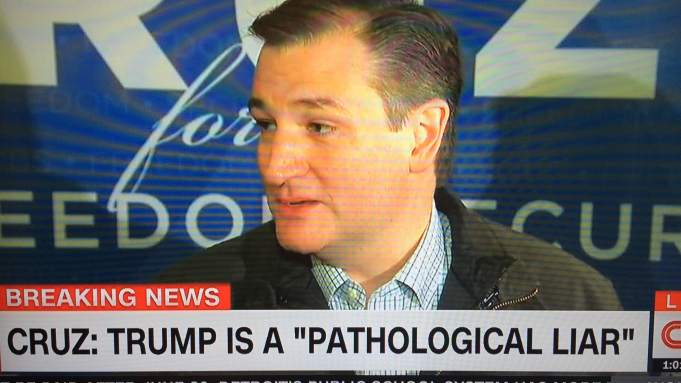The 2016 Republican Party Iowa Caucus results gave us a preview of how Donald Trump responds to an election loss.
In the afterglow of what the Des Moines Register referred to as GOP Sen. Ted Cruz’s “unexpected smackdown” of then-candidate Trump, @realDonaldTrump took to Twitter to accuse the senator of fraud.
“Ted Cruz didn’t win Iowa, he stole it,” reads the tweet. In a subsequent tweet, Trump called for a new election or even nullification of the Iowa results because of the “fraud committed.”
There was no evidence. There was no fraud. And Cruz’s campaign pushed back vehemently. We know how the rest of the Republican primary and the general election went, because Trump is currently the outgoing President of the United States.
While Republicans have made false accusations of voter fraud for a long time, in a study spanning twenty-plus years, The Heritage Foundation—a conservative think tank—found just 143 convictions involving fraudulent ballots. That’s 0.00006 percent of total votes cast. You are more likely to be struck by lightning… twice.
These kinds of party-line antics are unfortunately standard operating procedure for Republicans in a general election, but this blatant accusation of fraud within the party primary was pretty explosive in 2016.
Four years later, Republicans are again raising accusations of voter fraud—only this time, Sen. Cruz is following the president’s dangerous and delirious lead. This time he’s carrying the president’s water, backing the president’s unproven claims, saying he believes President Trump “still has a path to victory.”
None of this is supported by the evidence. Nearly—if not all—of the Trump campaign’s lawsuits in five swing states have been thrown out. Previously touted evidence of fraud in Pennsylvania has, itself, been found to be fraudulent. International leaders, including the president’s strongman friend and current president of Turkey, Recep Tayyip Erdoğan, have already congratulated President-elect Joe Biden on his win. Even the autocrat knows when to hang up his hat.
Sen. Cruz and recently re-elected Sen. John Cornyn need to hang up their hats on this one, too.
Their insistence that these unfounded allegations are more important than our democratic norms and traditions is having a real and dangerous effect on the American people’s ability to trust that we have free and fair elections. Since election day, new polling from Morning Consult shows that Republican Party trust in American elections has dropped from 70-plus percent to just over 30 percent in just the last week.
America is a democracy, and democracies only function if their citizens believe their elections are run fairly.
I worked the polls this year in Travis County, Texas. Election workers are patriotic, upstanding citizens, and America’s elections infrastructure is sound. Our democracy needs to work better for everybody, but it does work. Since election day, I’ve spoken with election workers around the country and every single one of them—regardless of personal party affiliation—believe that they are doing civic work, not political work.
Fraud is a serious allegation. Nobody doubts that folks may unintentionally cast a ballot, but a criminal conspiracy on the level of what Sen. Cruz and President Trump are alleging would, in the words of GOP operative Karl Rove just days ago, “require a conspiracy on the scale of a James Bond movie. That isn’t going to happen.”
There is nothing contradictory about us acknowledging Biden’s decisive win in the Electoral College and the popular vote, beginning the peaceful transition of power, and continuing to investigate any credible allegation of fraud. We can do all of those things at the same time.
Sen. Cruz’s credibility and our country have already suffered a lot as a result of his ongoing decision not to stand up to Donald Trump on behalf of many Texans or on behalf of his party over the last four years. He must do so now for the health of American democracy.




